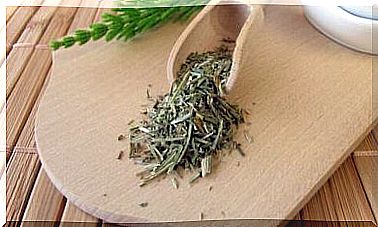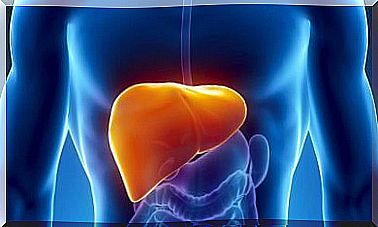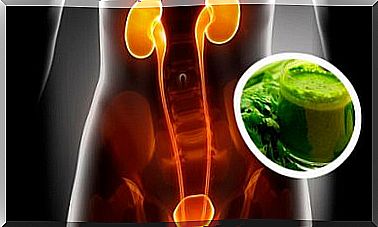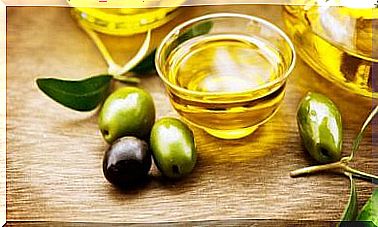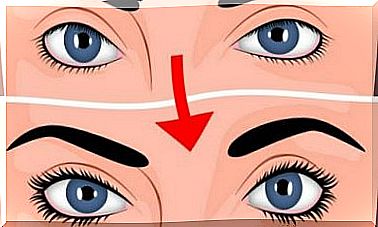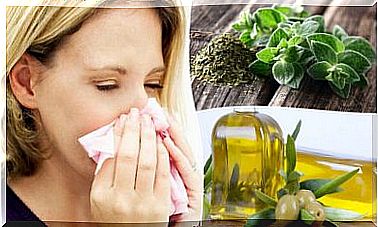Learn More About Cough Associated With Colds
Coughs are used to expel secretions and foreign particles that may be present in the airways. Specifically, the cough associated with the common cold can be dry, oily, or mixed.

One of the most common symptoms in winter is a cough associated with a cold. But it is not only a symptom of the disease, but also a defense mechanism of the body. It is indeed useful for expelling secretions and foreign particles present in the respiratory tract.
On the other hand, cough can have different causes, such as:
- Inflammatory infectious processes that affect the respiratory tract
- Inhalation of irritating or toxic substances
- Chronic respiratory diseases
- Side effects of a drug
Types of cough associated with colds
Dry cough
The cough occurs as a result of irritating stimuli in the pharynx, larynx and upper respiratory tract. Often the cough itself increases the irritation and the urge to cough, causing a vicious cycle. As a result, the throat becomes more and more irritated.
In these cases, treatment is aimed at reducing the intensity and frequency of the cough. In general, centrally or peripherally acting cough suppressants are used. Or natural substances that protect the mucous membranes from irritating factors.
Fatty cough
It is produced by stimulation of the nerves in the lower respiratory tract, accompanied by mucus. Depending on the consistency of the mucus, it will be more or less easy to expel it through a cough.
It is not recommended to stop this type of cough because it is a defense mechanism for the expulsion of the agents that are the cause. However, treatments are available to thin the mucus, reduce its viscosity and facilitate its expulsion.
A dry cough that progresses to a fatty cough, a normal symptom of the common cold
In the early stages of a cold, a dry cough usually appears due to an irritative and inflammatory process. However, as the process progresses, inflammation of the airways leads to increased mucus production.
This mucus then becomes dense and viscous, giving rise to a fatty cough as a defense mechanism to expel the phlegm. This is a natural evolution of the cough associated with the common cold which should not alarm us.

How to treat cough associated with colds with herbal medicine?
In the field of herbal medicine, there are different plants and other ingredients of natural origin which, individually or in combination, act on the various types of cough. The action they exert can be of three types:
- Demulsifying and protective
- Antitussive
- Expectorant
Among the components most used by herbal medicine for these treatments, we find mucilages, saponins, flavonoids and essential oils.
Mucilages
These are polysaccharides which have a demulsifying and protective effect on the mucous membranes against irritants. At the same time, they can hydrate the mucous membranes and thus promote the thinning of the mucus. Which facilitates his expulsion.
In addition, they are used as well for the dry cough as for the fatty cough. Among the mucilage plants are aloe vera, mallow, poppy, mullein, plantain and marshmallow.
Saponins
Saponins act primarily as expectorants through two different mechanisms. On the one hand, by a reflex action in the middle of the vagus nerve, they induce bronchial secretion. And on the other hand, in contact with the mucus, they thin it and thus facilitate its expulsion.
In addition, the main plants used, because of their saponin content, and which are indicated as expectorants are: ivy, primrose, and liquorice. Among them, the most widely used is ivy, although its mechanism of action is not widely known.
However, according to a report from the European Medicines Agency (EMA), the results of recent studies suggest that the saponins contained in ivy leaves promote the dilation of the bronchi and stimulate the secretion of phlegm.

Essential oils
The essential oils used to treat cough associated with colds have in common an antimicrobial action. Thanks to their composition, essential oils offer several therapeutic properties. They are effectively balsamic, cough suppressant and expectorant. In addition, when administered orally, they have a local effect on the respiratory system.
To treat respiratory ailments, essential oils of Scots pine, ravintsara and oregano are used. They can be used alone or in combination. In addition, they are not only used to treat diseases, but also to prevent them.
Conclusion
In addition to pharmacological treatments for cough associated with colds, herbal medicine can be a great option. It is efficient and safe. In addition, many of the herbal substances can be used for both dry coughs and fatty coughs.
There are even preparations available in pharmacies based on these natural substances. However, if you have any doubts about a persistent cough or strange-looking mucus, it is necessary to consult a doctor.


